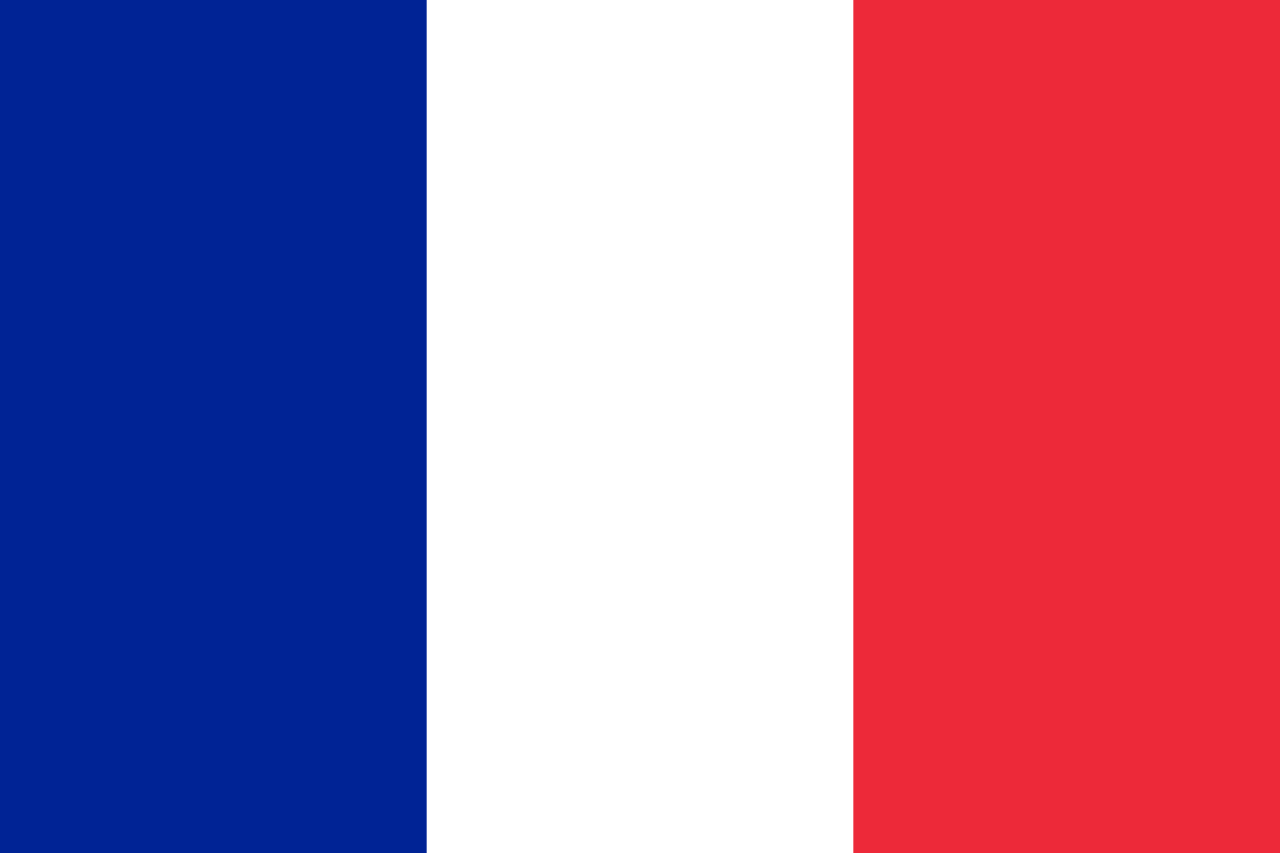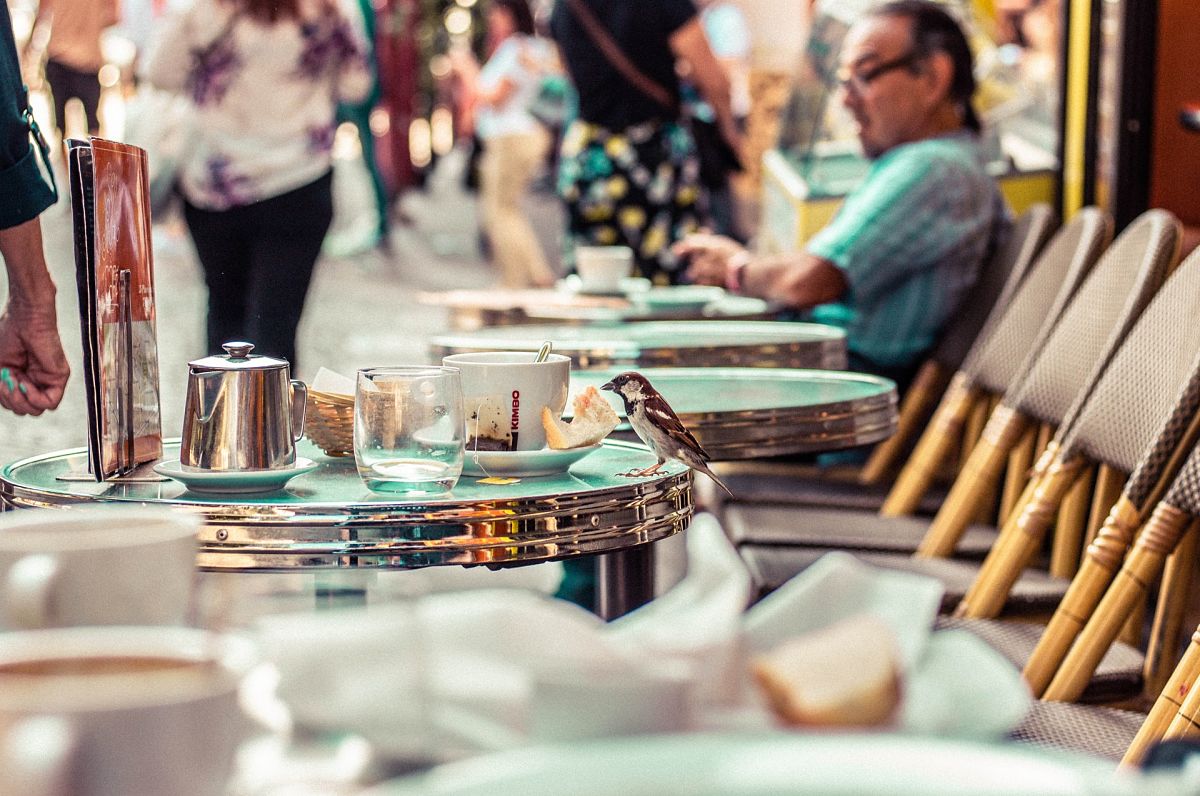France - Culture, Etiquette and Business Practices

Bonjour! Welcome to our guide to France.
Perfect or anyone researching French culture, customs, manners, etiquette, values and wanting to understand the people better.
Remember this is only a very basic level introduction and is not meant to stereotype all French people you may meet!
What will you Learn About France?
You will gain an understanding of a number of key areas including:
- Language
- Religion and beliefs
- Culture and society
- Social etiquette and customs
- Business cultureand etiquette
Buy an In-Depth Insight Report for France
For those needing a more detailed and comprehensive overview of France we have published an expert Report on French Society, Culture & Business.
The 52-page PDF document has been authored by one of our France country specialists and provides readers with much more detail that our free guide above. Topics include:

- An introduction to the country, its history, politics, people and culture
- Insights into the country’s values, customs and etiquette
- Tips on preparing to work with new colleagues from France
- Expat-orientated information on daily life
- Guidelines and tools on adapting and dealing with cultural differences
All for only $7.
Order via the button below to receive your France Insight via email or read more about it here before buying!
Facts and Statistics
- Location: Western Europe, bordering Andorra 56.6 km, Belgium 620 km, Germany 451 km, Italy 488 km, Luxembourg 73 km, Monaco 4.4 km, Spain 623 km, Switzerland 573 km
- Capital: Paris
- Climate: generally cool winters and mild summers, but mild winters and hot summers along the Mediterranean; occasional strong, cold, dry, north-to-northwesterly wind known as mistral
- Population: 65+ million (2019 est.)
- Ethnic Make-up: Celtic and Latin with Teutonic, Slavic, North African, Indochinese, Basque minorities
- Religions: Roman Catholic 83%-88%, Protestant 2%, Jewish 1%, Muslim 5%-10%, unaffiliated 4%
- Government: republic
- Business Culture: Ranked 5th in The Business Culture Complexity Index™

Out in the streets of Marseille to celebrate the national football team's victory in the World Cup. Photo by Matthieu Joannon on Unsplash
Languages in France
French, the official language, is the first language of 88% of the population.
Most of those who speak minority languages also speak French, as the minority languages are given no legal recognition. 3% of the population speak German dialects, predominantly in the eastern provinces of Alsace-Lorraine and Moselle.
Flemish is spoken by around 90,000 people in the northeast, which is 0.2% of the French population. Around 1m people near the Italian border, roughly 1.7% of the population, speaks Italian. Basque is spoken by 0.1% and mainly along the French-Spanish border.
Catalan dialects are spoken in the French Pyrenees by around 260,000 people or 0.4% of the French population.
The Celtic language, Breton, is spoken by 1.2% and mainly in the north west of France. These three languages have no official status within France.
In the South of France, over 7m speak Occitan dialects, representing 12% of the population of France, but these dialects have no official status. Nor too does Corsu, the dialect of the island of Corsica that is closely related to Tuscan and is spoken by 0.3%.
Arabic, the third largest minority language, is spoken by around 1.7% of the population throughout the country. Other immigrant languages from the former French colonies include Kabyle and Antillean Creole.
French Society & Culture
Cuisine
- Food is one of the great passions of the French people.
- French cooking is highly refined and involves careful preparation, attention to detail, and the use of fresh ingredients.
- It varies by region and is heavily influenced by what is grown locally.
French Family Values
- The family is the social adhesive of the country and each member has certain duties and responsibilities.
- The extended family provides both emotional and financial support.
- Despite their reputation as romantics, the French have a practical approach towards marriage.
- Families have few children, but parents take their role as guardians and providers very seriously.
Relationships - Public vs. Private
- The French are private people and have different rules of behaviour for people within their social circle and those who are not.
- Although the French are generally polite in all dealings, it is only with their close friends and family that they are free to be themselves.
- Friendship brings with it a set of roles and responsibilities, including being available should you be needed. Friendship involves frequent, if not daily, contact.
Cafes are a central part of daily life for many French people. Photo taken in Montmarte (Paris) by Matthieu Joannon on Unsplash
Etiquette & Customs in France
Meeting Etiquette
- The handshake is a common form of greeting.
- Friends may greet each other by lightly kissing on the cheeks, once on the left cheek and once on the right cheek.
- First names are reserved for family and close friends. Wait until invited before using someone's first name.
- You are expected to say 'bonjour' or 'bonsoir' (good morning and good evening) with the honorific title Monsieur or Madame when entering a shop and 'au revoir' (good-bye) when leaving.
- If you live in an apartment building, it is polite to greet your neighbours with the same appellation.
Gift Giving Etiquette
- Flowers should be given in odd numbers but not 13, which is considered unlucky.
- Some older French retain old-style prohibitions against receiving certain flowers: White lilies or chrysanthemums as they are used at funerals; red carnations as they symbolize bad will; any white flowers as they are used at weddings.
- Prohibitions about flowers are not generally followed by the young. When in doubt, it is always best to err on the side of conservatism.
- If you give wine, make sure it is of the highest quality you can afford. The French appreciate their wines.
- Gifts are usually opened when received.
The French don't have a great reputation for customer service.
It's cultural...once a French waiter went to court to argue that he shouldn't have been sacked for being rude as it's part of the culture!
Click here to read more about this story
Dining Etiquette
If you are invited to a French house for dinner:
- Arrive on time. Under no circumstances should you arrive more than 10 minutes later than invited without telephoning to explain you have been detained.
- The further south you go in the country, the more flexible time is.
- If invited to a large dinner party, especially in Paris, send flowers the morning of the occasion so that they may be displayed that evening.
- Dress well. The French are fashion conscious and their version of casual is not as relaxed as in many western countries.
Table manners
- Table manners are Continental -- the fork is held in the left hand and the knife in the right while eating.
- If there is a seating plan, you may be directed to a particular seat.
- Do not begin eating until the hostess says 'bon appetit'.
- If you have not finished eating, cross your knife and fork on your plate with the fork over the knife.
- Do not rest your elbows on the table, although your hands should be visible and not in your lap.
- Finish everything on your plate.
- Do not cut salad with a knife and fork. Fold the lettuce on to your fork.
- Peel and slice fruit before eating it.
- Leave your wine glass nearly full if you do not want more.
Avoid doing business with or in France during August. The whole country pretty much shuts down to focus on fun and family.
Photo taken in Quend by Kevin Delvecchio on Unsplash
Business Culture and Etiquette in France
If you're looking for expert help and advice on how to work effectively with the French, then this is what we do!
Click here to learn more about our customized cultural training.
Relationships & Communication
- French business behaviour emphasizes courtesy and a degree of formality.
- Mutual trust and respect is required to get things done.
- Trust is earned through proper behaviour.
- Creating a wide network of close personal business alliances is very important.
- If you do not speak French, an apology for not knowing their language may aid in developing a relationship.
- It is always a good idea to learn a few key phrases, since it demonstrates an interest in a long-term relationship.
- The way a French person communicates is often predicated by their social status, education level, and which part of the country they were raised.
- In business, the French often appear extremely direct because they are not afraid of asking probing questions.
- Written communication is formal. Secretaries often schedule meetings and may be used to relay information from your French business colleagues.
Business Meeting Etiquette
- Appointments are necessary and should be made at least 2 weeks in advance.
- Appointments may be made in writing or by telephone and, depending upon the level of the person you are meeting, are often handled by the secretary.
- Do not try to schedule meetings during July or August, as this is a common vacation period.
- If you expect to be delayed, telephone immediately and offer an explanation.
- Meetings are to discuss issues, not to make decisions.
- Avoid exaggerated claims, as the French do not appreciate hyperbole.
- Read more about business meetings in France here.
Business Negotiation
- French business emphasizes courtesy and a fair degree of formality.
- Wait to be told where to sit.
- Maintain direct eye contact while speaking.
- Business is conducted slowly. You will have to be patient and not appear ruffled by the strict adherence to protocol.
- Avoid confrontational behaviour or high-pressure tactics. It can be counterproductive.
- The French will carefully analyze every detail of a proposal, regardless of how minute.
- Business is hierarchical. Decisions are generally made at the top of the company.
- The French are often impressed with good debating skills that demonstrate an intellectual grasp of the situation and all the ramifications.
- Never attempt to be overly friendly. The French generally compartmentalize their business and personal lives.
- Discussions may be heated and intense.
- High-pressure sales tactics should be avoided. The French are more receptive to a low-key, logical presentation that explains the advantages of a proposal in full.
- When an agreement is reached, the French may insist it be formalized in an extremely comprehensive, precisely worded contract.
Are you from the USA?
Do you work with the French?
Then click here to discover the 3 biggest cultural differences between Americans and French in business!
Dress Etiquette
- Business dress is understated and stylish.
- Men should wear dark-coloured, conservative business suits for the initial meeting. How you dress later is largely dependent upon the personality of the company with which you are conducting business.
- Women should wear either business suits or elegant dresses in soft colours.
- The French like the finer things in life, so wear good quality accessories.
Business Cards
- Business cards are exchanged after the initial introductions without formal ritual.
- Have the other side of your business card translated into French. Although not a business necessity, it demonstrates an attention to detail that will be appreciated.
- Include any advanced academic degrees on your business card.
- French business cards are often a bit larger than in many other countries.
Management
- Please see our guide to French Management Culture for more detailed information on this topic.
THANKS FOR READING OUR GUIDE TO FRANCE. WE HOPE YOU FOUND IT USEFUL.
Do you need to cite this page for school or university research?
Please see below examples.
Simply change the country name depending on which guide you are referencing.
MLA Format:
Commisceo Global Consulting Ltd. Afghanistan - Language, Culture, Customs and Etiquette. www.commisceo-global.com. 1 Jan. 2020 https://commisceo-global.com/resources/country-guides/afghanistan-guide
APA Format:
Commisceo Global Consulting Ltd. (2020, January 1) Afghanistan - Language, Culture, Customs and Etiquette. Retrieved from https://commisceo-global.com/resources/country-guides/afghanistan-guide
Harvard Format:
Commisceo Global Consulting Ltd. (2020). Afghanistan - Language, Culture, Customs and Etiquette. [online] Available at: https://commisceo-global.com/resources/country-guides/afghanistan-guide [Accessed ENTER DATE].

 +44 0330 027 0207 or +1 (818) 532-6908
+44 0330 027 0207 or +1 (818) 532-6908



